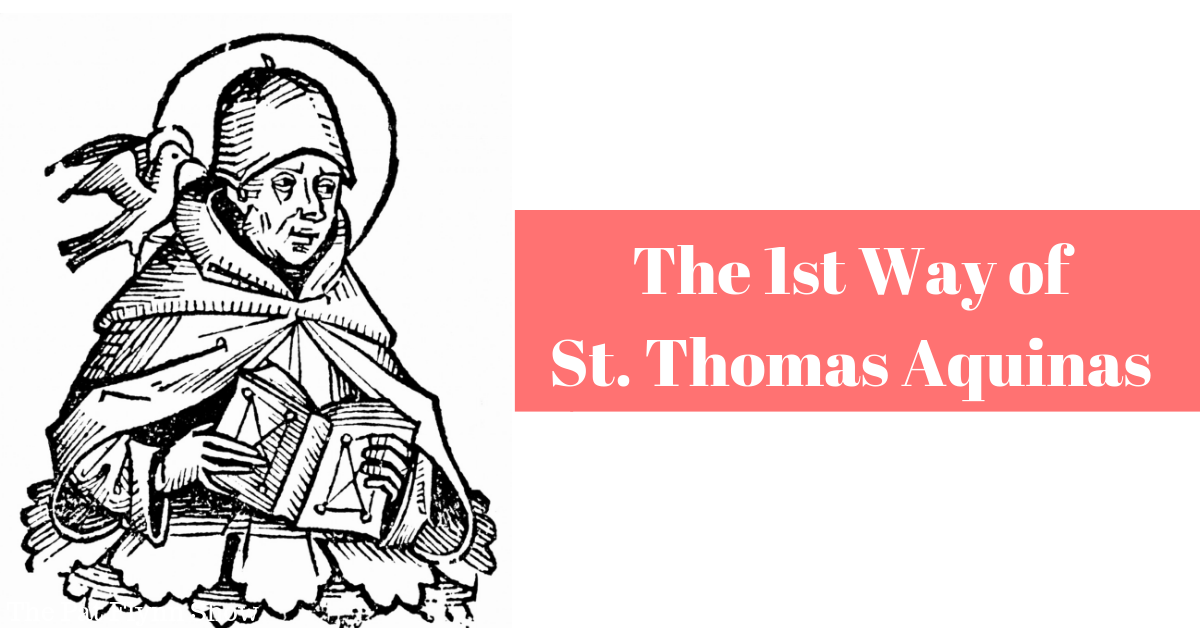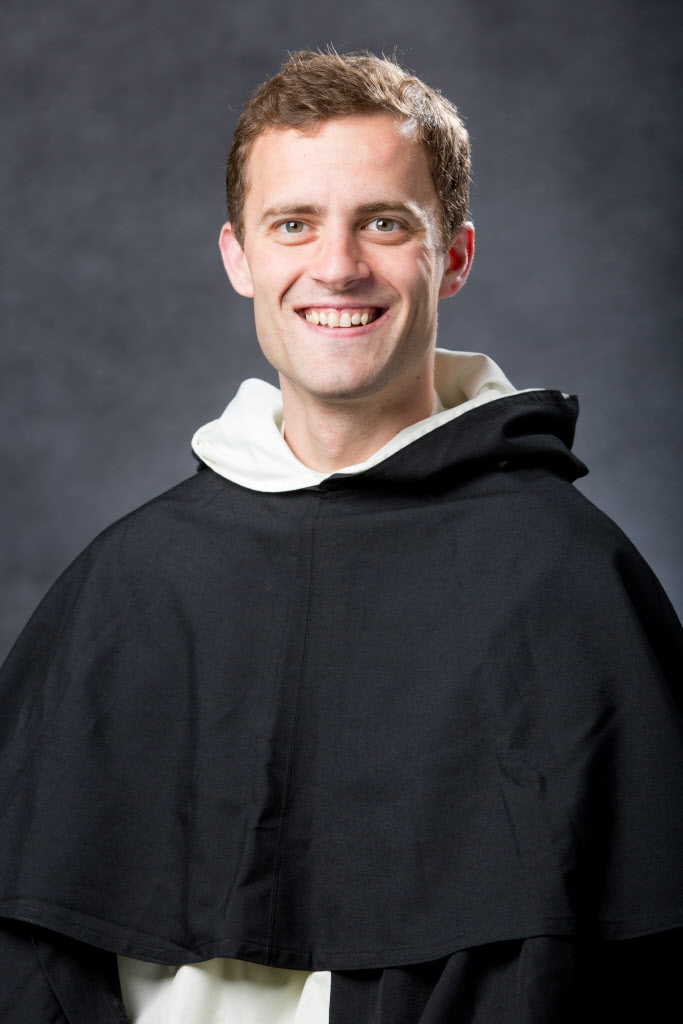
Pat Flynn is joined again by Fr. Gregory Pine to discuss natural theology and St. Thomas Aquinas, specifically his famous philosophical proofs for the existence of God, with a special emphasis on the argument from motion. Do these proofs hold up, and what exactly do they hope to convey? All this and more on today’s Philosophy Friday!
Teach Us the 1st Way of St. Thomas Aquinas
OR, ==> CLICK HERE TO DOWNLOAD THE EPISODE.
About Gregory Pine

Fr. Gregory Pine, O.P. serves presently as Assistant Director of Campus Outreach for the Thomistic Institute. He served previously as an associate pastor at St. Louis Bertrand Church in Louisville, KY where he also taught as an adjunct professor at Bellarmine University. Born and raised near Philadelphia, PA, he attended the Franciscan University of Steubenville, studying mathematics and humanities. Upon graduating, he entered the Order of Preachers in 2010. He was ordained a priest in 2016 and holds an STL from the Dominican House of Studies. He has published articles in Nova et Vetera, The Thomist, and Angelicum. He is also a regular contributor to the podcasts Pints with Aquinas and Godsplaining.
Show Notes and Resources
Fr. Gregory on the Matt Fradd Show
Godsplaining Podcast: https://m.soundcloud.com/godsplaining
Related Episodes
The Pat Flynn Show
If you enjoyed this episode, it would mean the world to me if you could subscribe to, and leave a review for, The Pat Flynn show on iTunes HERE or Stitcher HERE.
Reading your reviews and hearing your feedback is what keeps me fired up to make The Pat Flynn Show happen. Thank you!
Hi Pat,
Great episode. I hope you can have more talks with Fr. Pine – I’ve heard him elsewhere and am becoming a big fan. I have a theory which may answer the question you posed about the origin of the argument against God that goes: “If everything needs a cause, then who caused God?”. In my travels, listening to different talks by Catholics who had studied Aquinas’ 5 ways, I’ve found that the presentation of the 2nd way may not always be done with great precision using the exact wording of Aquinas, or perhaps it is done with precision, laying out the argument something like this:
1. Everything which has come to exist has been caused to come to exist.
2. Nothing which has come to exist can be the cause of its own existence.
3. Everything which has come to exist is caused to exist by something other than itself. (follows from 1,2)
4. It is impossible for a chain of causes of this kind to go on to infinity.
C. There must be a first cause, which causes other things to come into existence but did not itself come into existence. (follows from 3,4)
But I suspect that the average person presented with that, if untrained in philosophy and logic and how critical each word can be in such a syllogism, may end up “hearing” it as “everything that exists needs a cause”. It’s almost like the telephone game. I would guess other factors also come into play, such as how open a person is to hearing the arguments in the first place. While we may charitably like to assume that people will be perfectly fair and give it their best to try to understand the reasons given for believing in God, realistically that’s probably rarely the case. And so they walk away from a presentation of Aquinas’ arguments with a dumbed down (and completely incorrect) version which they happily tell others about, and so that’s the version that becomes popularized.
Interesting theory, Paul. I haven’t spent a whole lot of timing digging into this, but your suggestion seems plausible. Anyway, glad you enjoyed the episode, and thanks for chiming in. I hope to have Fr. Gregory on again soon, perhaps even to discuss the second way : )
In my graduate study of quantum mechanics: Schrodinger in steady state and the energy operator for time dependent perturbation theory it is possible to prove the physical reality of free will in the chemical reactions in the brain manifesting consciousness through Heisenberg indeterminacy. The laws of physics at the scale of individual electrons changing state in these reactions determine only probability. There are no physical laws absolutely determining exactly the chemistry of consciousness. We have a measure of free will which gives us some responsibility for our choices and a dignity we would not have if we were mere atoms.
I would like to forward to you a paper I wrote after I graduated from Delaware State University with my PhD in applied mathematics and mathematical physics in 2009.
You need not have a command of the equations I use in this document to prove everything here to see how it all works.
Hi Robert,
I’d be interested in reading this.
You can reach me at PatFlynn(at)ChroniclesOfStrength(dot)com.
Thanks!
– Pat